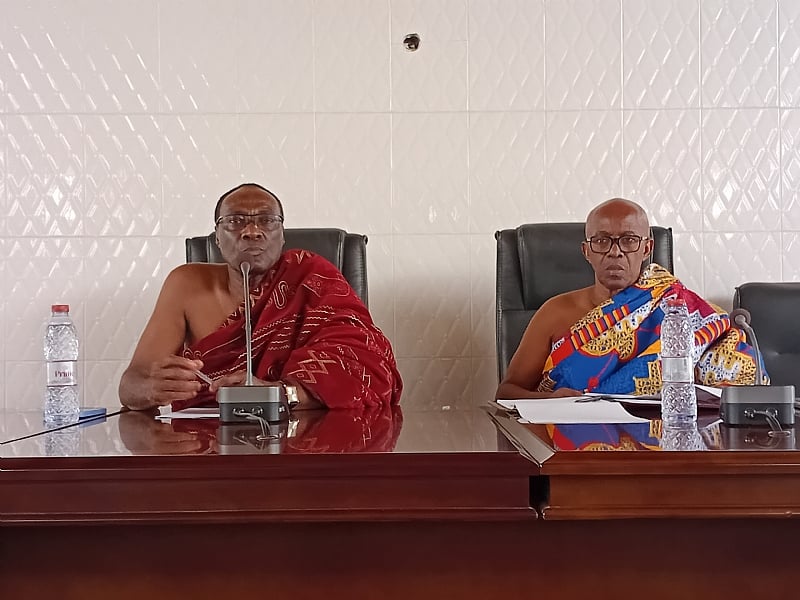The Volta Regional House of Chiefs has issued a resounding call for stronger enforcement of Ghana’s mining laws and a complete ban on the use of mercury and other harmful chemicals in mining operations. This demand emerged during a stakeholder engagement with the Minerals Commission, aimed at reforming the nation’s mining legal and policy framework. Torgbui Tepre Hodo IV, President of the House of Chiefs, voiced deep concerns over the lax enforcement of existing laws, highlighting the stark contrast between legislation and its implementation, which has allowed environmental degradation and public health crises to escalate, largely fueled by illegal mining. He underscored the urgent need for laws to be effectively enforced, questioning the legacy being left for future generations if the current trajectory of environmental destruction persists.
Torgbui Hodo emphasized the futility of merely declaring a ban on mercury without imposing tangible consequences for violations. He warned of the dire health implications stemming from the contamination of food and water sources by mercury and other toxic chemicals, citing instances of birth deformities in mining-affected communities. He stressed the gravity of the situation, urging immediate and decisive action to mitigate the risks. Further criticizing the nation’s pattern of enacting well-crafted laws that lack effective enforcement, he called for a robust and comprehensive legal framework, devoid of loopholes, to prevent further environmental damage. He broadened the scope of concern beyond illegal mining, pointing out that even licensed operations have, in some cases, become destructive, and urged regulators to proactively monitor all mining activities and ensure strict adherence to environmental standards. He maintained that mining should not occur at the expense of vital resources like water bodies, forests, and arable land.
The call for a mercury ban was reiterated, with Torgbui Hodo stressing the crucial need for enforcement alongside declarations. He argued that only through real sanctions would the law be taken seriously. This engagement forms part of a wider consultation initiated by the Minerals Commission to review the Minerals and Mining Act, 2006 (Act 703), and the 2014 Minerals and Mining Policy. This comprehensive review aims to address inadequacies in the current regulatory system, adapt to evolving industry issues, and bolster the protection of communities and the environment.
Professor Jerry Kuma, Special Advisor to the Minister for Lands and Natural Resources, explained the necessity of reviewing both the law and policy, advocating for a five-year review cycle to align with global trends, technological advancements, and shifting national priorities. The discovery of new strategic minerals like lithium, uranium, and graphite further underscores the need for a legal framework overhaul. Prof. Kuma outlined the inclusive nature of the review process, highlighting consultations with diverse stakeholders, including universities, research institutions, the Ghana Chamber of Mines, civil society organizations, the National Development Planning Commission, and small-scale miners. He acknowledged the significant role of traditional leaders, who often serve as custodians of mineral-rich lands.
The review process includes region-specific consultations with traditional authorities to gather comprehensive input before finalizing the draft legislation, which will then be submitted to Parliament for deliberation and eventual enactment. A significant policy shift announced by Prof. Kuma aims to empower chiefs with greater authority in decisions related to small-scale mining concessions. This move is designed to prevent unauthorized licensing and ensure that local leaders are actively involved in decisions affecting their communities.
These consultations represent a concerted effort to enhance transparency, environmental responsibility, and social inclusivity within Ghana’s mining industry. The goal is to create a mining sector that balances economic development with environmental protection and the well-being of communities affected by mining activities. The emphasis on enforcing existing laws, banning harmful chemicals, and empowering local communities signifies a crucial step towards sustainable mining practices in Ghana. The comprehensive review of the existing legal and policy framework, coupled with broad stakeholder consultations, underscores the government’s commitment to fostering a responsible and beneficial mining sector.














